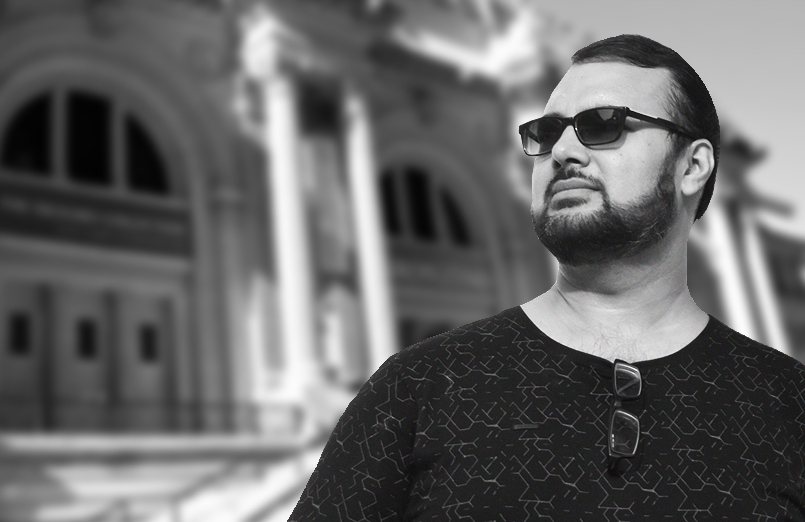Poet and writer KAUSHIK CHAKRABORTY is Director, Strategy & Planning, THE SAUCE Brand Communications, a full-service contemporary ad agency. A graduate research scholar in Indology from Kolkata’s venerable St. Xavier’s College, Chakraborty describes himself professionally as a “listener, ideator, and storyteller”. Chakraborty, who, along with advertising veteran Chidakash Rao, curates THE SAUCE, says the eponymous agency “plays the same role that’s played by other sauces” — that of a creative lubricant and enhancer. “Let’s first agree that we’re in a bad time now. Anybody who engages the human mind ‘positively’ during bad times ultimately emerges as the ‘best friend’. Similarly, if a brand wishes to be its audience’s ‘best friend’, they should be in play now,” says Chakraborty in an interview he gave to our Editor K.G. SREENIVAS.
EXCERPTS
Creative Brands: For people, brands, and communication, these are unprecedented times. Times such as these put to test all known and received notions of communication and branding. At THE SAUCE, how do you visualise brands communicating with the world outside given the circumstances? People will go back to work — as you have already — and the lockdown will be lifted but things are never going to be the same again.


Kaushik Chakraborty: First of all, the brands should eschew the purely commercial and align themselves organically with the plight of the common man. Maybe, it will not yield revenue, but it will definitely fetch valuable mind space. Every brand should connect with its audience and explore how it can empower the members of its audience to come out of this unprecedented situation. Such a strategy would help brands retain their audience and loyalty.
CB: Societal change, sometimes radical, often propels brand transformation. And vice-versa: brands also ride this cataclysmic wave of societal change that has gripped the world. What do you see rising out of the current churn in relation to brands, brand thinking, and advertising?
KC: Brands will have to be decidedly more humane. They’ll have to evolve as an umbrella, providing moral shelter to their customers. This is also the time when a brand can show solidarity with its customers. These days, people have more time at hand but lesser avenues to engage with. Naturally, the challenge of ‘buying’ prime-time slots in the media doesn’t apply now. So, brands got to harness our ‘idling’ brains and stimulate us through creative storytelling and by building relationships. Till the day the first phase of the lockdown was announced, brands spoke about their product promises. Now, keep aside the product(s) and let’s talk about the promises. Once there is a deepening of the relationship, people will automatically relate the brands’ promises with its products.


CB: Given the extent of the shutdown with all production, manufacturing, and services affected like never before, most say what do we advertise anyway? Yet, brands need to be in play. With people working from home, digital has come to the fore like never before. How do you think brands can keep themselves in play and relevant once the pandemic hopefully fades away — although unlikely as many experts say.
KC: I think this is the ideal time for brand boosting. Brands have never ever got such a wide canvas to showcase themselves on. Particularly for brands that have hit that plateau and are struggling to make a comeback, this is just the right time for a turnaround. For those brands, who couldn’t live up to its promises — and people either disowned or discarded them — this is the time to reconnect with their audiences. Let’s agree that we’re in a bad way as we speak and anybody or anything that engages the human mind ‘positively’ during bad times can only emerge as the best or ‘preferred’ friend.
CB: At THE SAUCE, how did you go about looking at the crisis and what was your considered response? How did you address your clients’ concerns?
KC: We tell our clients the exact same thing that we apply in our communication with them. Since most of our clients are in the real estate sector, we advise them to come out with communication that help their customers dream realistically. The thought should speak for itself: no matter how bad the situation is, never give up dreaming.
Talking about Corona might
dissuade people; talking about Care will persuade people. A client dealing with geriatric care in Mumbai can easily reach out to a middle-aged professional in Bengaluru, who knows, maybe he or she has old parents alone in Mumbai. So, the geography is gone, and the demography is on. My mantra is, since this is a bad time, let
brands talk about good things.
And this will surely work.
CB: The crisis brought to the fore — not quite unexpectedly because this was unprecedented — a situation where on the agency side creatives had had to scramble to find newer ways of coming up with a creative response, newer ways of ensuring brand salience without taking undue advantage of the Corona crisis. What were the lessons you drew and how did you codify, if at all, your substantive creative response?
KC: Creatives are a link between the product and its target customer. So, they got to be relevant, realistic, and responsible. Talking about Corona might dissuade people; talking about Care will persuade people. A client dealing with geriatric care in Mumbai can easily reach out to a middle-aged professional in Bengaluru, who knows, maybe he or she has old parents alone in Mumbai. So, the geography is gone, and the demography is on. My mantra is, since this is a bad time, let brands talk about good things. And this will surely work.











